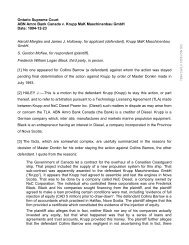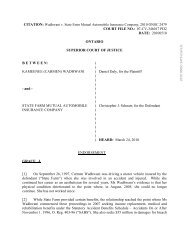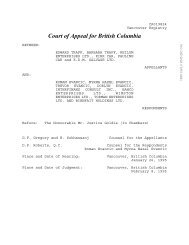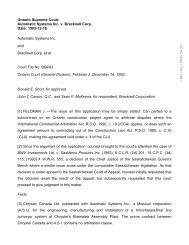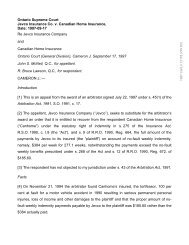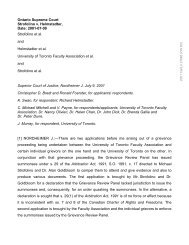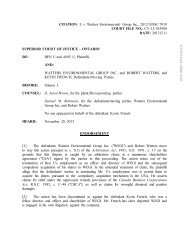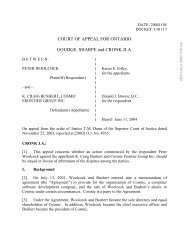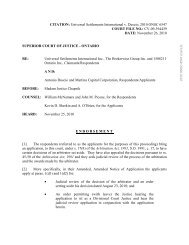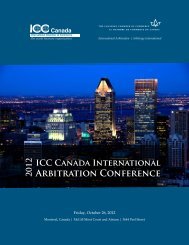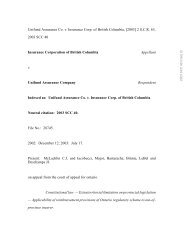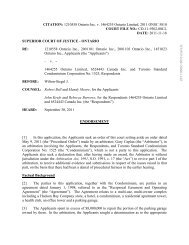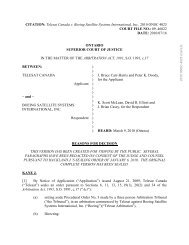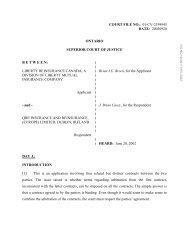United Mexican States v Karpa 2003 CanLII 34011 - Arbitration Place
United Mexican States v Karpa 2003 CanLII 34011 - Arbitration Place
United Mexican States v Karpa 2003 CanLII 34011 - Arbitration Place
- No tags were found...
You also want an ePaper? Increase the reach of your titles
YUMPU automatically turns print PDFs into web optimized ePapers that Google loves.
- 6 -stating that the award will be set aside on this ground providing that the breach of the Party’sagreement is substantial. This is set out in the Compagnie des Bauxites de Guinée v.Hammermills Inc., 1992 WL 122712 (D.D.C. 1992) at p. 4:Rather, the court believes a more appropriate standard of review would be to setaside an award based on a procedural violation only if such violation workssubstantial prejudice to the complaining party.[18] The Applicant also argues that in the case of Investor-State <strong>Arbitration</strong> under NAFTA,the arbitration agreement is established by the Claimant’s acceptance of the State Party’s offer toarbitrate an investment dispute made in Article 1122. The NAFTA Party’s consent is expresslyconditioned.<strong>2003</strong> <strong>CanLII</strong> <strong>34011</strong> (ON SC)[19] Article 1122 states:Each party consents to the submission of a claim to arbitration in accordance withprocedures set out in this agreement.[20] The procedure set out in the NAFTA includes substantive and procedural limitationsimposed by Article 2105. Mexico therefore states that the arbitration was not conducted inaccord with the procedures set out in the agreement. This vitiates the Party’s consent and theaward must be set aside.[21] Another ground upon which Mexico urges this court to set aside the award is that byrequiring Mexico to pay the Claimant, as damages, tax rebates to which the Tribunal previouslyheld the Claimant had no legal right, the award is “repugnant” and is in conflict with publicpolicy contrary to Article 34(2)(b) of the Model Law.[22] The Tribunal as a whole had found that CEMSA had no legal right to claim rebates underImpuesto Especial Sobre Produccion y Servicios (the “Special Tax on Production and Services”or “IEPS”) law and that CEMSA’s business depended on them.[23] Arbitrator Covarrubias states in his dissent:If in actual fact, the Claimant is not entitled to IEPS rebates, it is repugnant togrant him a somewhat equivalent amount of compensation for damages onlybecause he alleges that there is another investor – a <strong>Mexican</strong> investor in likecircumstances-who has been granted IEPS rebates without being entitled to themeither.[24] In Corporacion Transnacional de Inversiones, S.A. de C.V. v. STET International, S.p.A.(1999), 45 O.R. (3d) 183 aff’d 49 O.R. (3d) 414 (C.A.), the Superior Court of Justice held thatArticle 34(2)(b)(ii),



